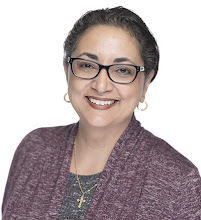Should law students (or young lawyers) blog about work? Part 2
The contents of the blog posts were not available online Wednesday, but according to Karnow's ruling, Kuo at various points called his opposing counsel "chicken" when she asked for a continuance, directly alluded to her with some posting titles obscene enough that the judge did not repeat them and mentioned a prior conviction that had not yet been deemed admissible at trial.
Yikes!
Kuo testified at a hearing this month that he typically restricted his blog postings to a small group of friends. He suggested a security problem at the Web site he used might have been responsible for a breach.
Secured or not, there have been several high profile cases of supposedly private emails, discussion groups, and IM conversations being distributed to a MUCH wider audience. It inevitably happens - people that have access to the information find it too juicy - and way too easy - not to just forward it along. Not much different from the usual grapevine, but faster, cheaper, and much harder to deny than a conversation in person. (Don't get me started on how some people miss "the good old days" where they could easily deny a conversation that actually happened)
There's even a case where a forensic expert was called in to find out where the leak was - and this was in a group of plaintiff's lawyers that had taken an oath of confidentiality!
"I can’t believe that someone had the—I don’t know what to call it—that someone was so unethical that they would print and photocopy e-mails to someone who is not a member of the group," he says. "We all signed an oath that we will not discuss the contents of the chat room."
John A. Weiss, a Tallahassee lawyer who defends attorney discipline cases, says that if the group determines who the culprit is, he or she might be prosecuted by the state bar under two rules. One prohibits lawyers from engaging in dishonest conduct, and the other stipulates attorneys should not engage in behavior that knowingly humiliates other attorneys.
---See CONFIDENTIAL E-MAIL CREATES PUBLIC CONTROVERSY
But this all just reaffirms my standing policy to only post online what you expect the whole world to see. Of course, this is not a new topic for me, but as summer clerkships are about to begin for many students, I suppose a link to my previous post on the subject is in order. How this affects distance education is yet another problem, but I'll wait until after my finals to tackle that again.
Speaking of.. Good luck to the law students out there taking finals!
[UPDATE] Here's a useful tidbit from the folks at legalethics.com:
11/27/05: In August 2005, the Professional Responsibility and Ethics Committee for the Los Angeles Bar Association issued Formal Opinion 514, holding that attorneys should avoid including any confidential or private information in a Listserv or other Internet posting that could be identified to a particular case or controversy.
[/UPDATE]
(data provided from NewsGator Online)

